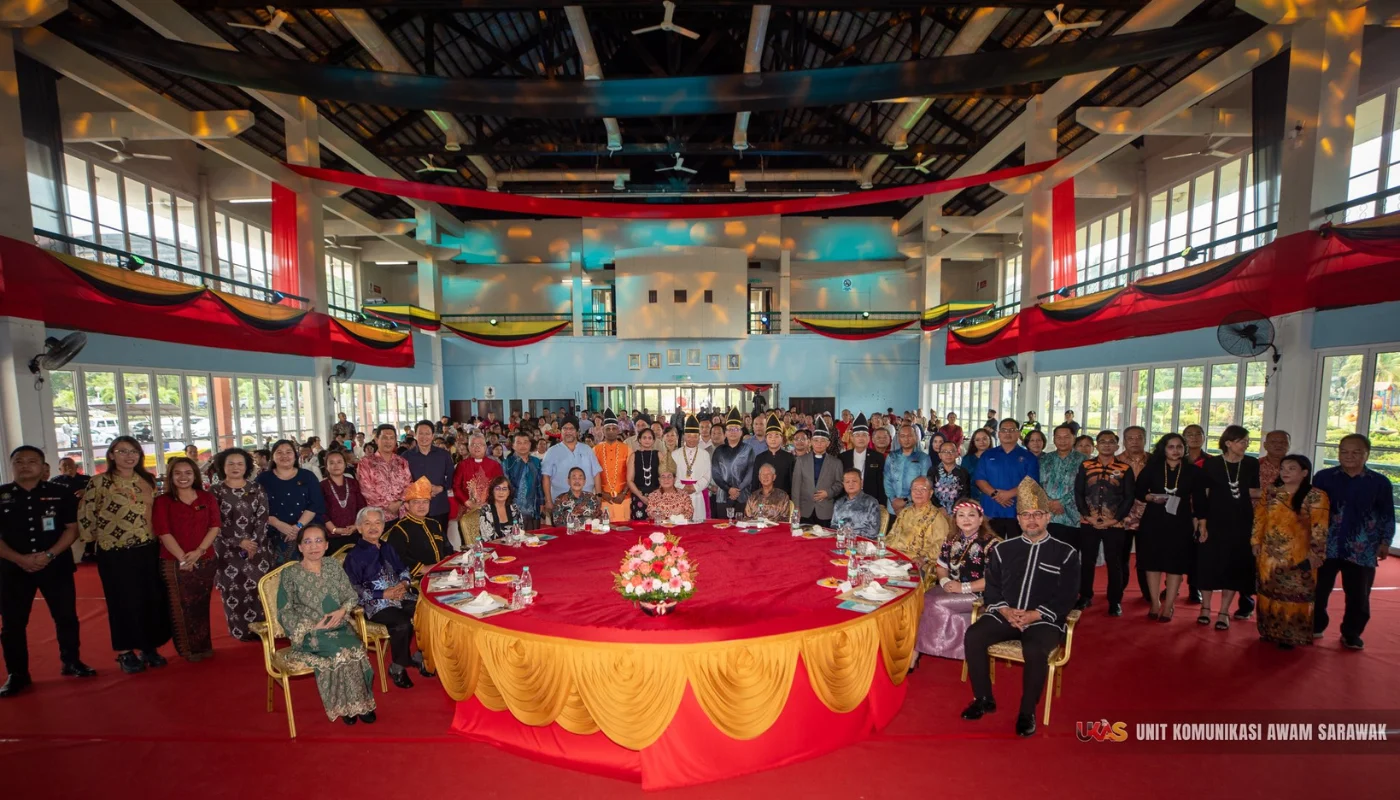LIMBANG – The establishment of the Unit for Other Religions (UNIFOR) under the Sarawak Premier’s Department in 2017 serves as a strong testament to the state government’s unwavering commitment to social inclusivity, unity, and the welfare of all Sarawakians, regardless of race or religion.
Sarawak Premier, Datuk Patinggi Tan Sri (Dr) Abang Abdul Rahman Zohari Tun Datuk Abang Openg, said UNIFOR has disbursed RM475 million in aid to various non-Muslim houses of worship across Sarawak — including Buddhist, Christian, Taoist, Baha’i, Sikh, and Hindu institutions — as part of the state’s inclusive development agenda.
“This support includes funds for new constructions, repairs, renovations, maintenance, as well as the procurement of equipment and religious items,” he said in a speech delivered on his behalf by Deputy Premier, Datuk Amar Douglas Uggah Embas, during the Thanksgiving Ceremony for Other Religions held in conjunction with the 2025 Sarawak-Level Official Birthday of the Yang di-Pertuan Agong, here on Wednesday.
He further revealed that since 2021, UNIFOR has also allocated RM90 million to missionary schools across Sarawak — bringing the total government allocation to UNIFOR to RM565 million.
“These financial grants reaffirm the Sarawak Government’s dedication to supporting religious harmony and maintaining safe, dignified spaces for worship and learning,” he added.
Also present at the event were Minister for Education, Innovation and Talent Development, who is also the Minister-In-Charge of the celebration, Dato Sri Roland Sagah Wee Inn; Deputy Minister for Tourism, Creative Industry and Performing Arts, Datuk Sebastian Ting Chiew Yew; Lawas MP, Dato Henry Sum Agong; Batu Danau ADUN, Dato Paulus Palu Gumbang; Sarawak Police Commissioner, Dato Mancha Ata; UNIFOR Director, Dato Georgina Apphia Ngau, and other distinguished guests.
To further enhance transparency and efficiency, the Premier announced that beginning this year, UNIFOR has begun collaborating with quantity surveyors from the Sarawak Public Works Department (JKR) to assist in the technical evaluation of grant applications.
“This collaboration ensures that project scopes and funding amounts are properly aligned, ensuring every allocation is justified and meets the real needs of the communities,” he said.
Photo Credit: UKAS






